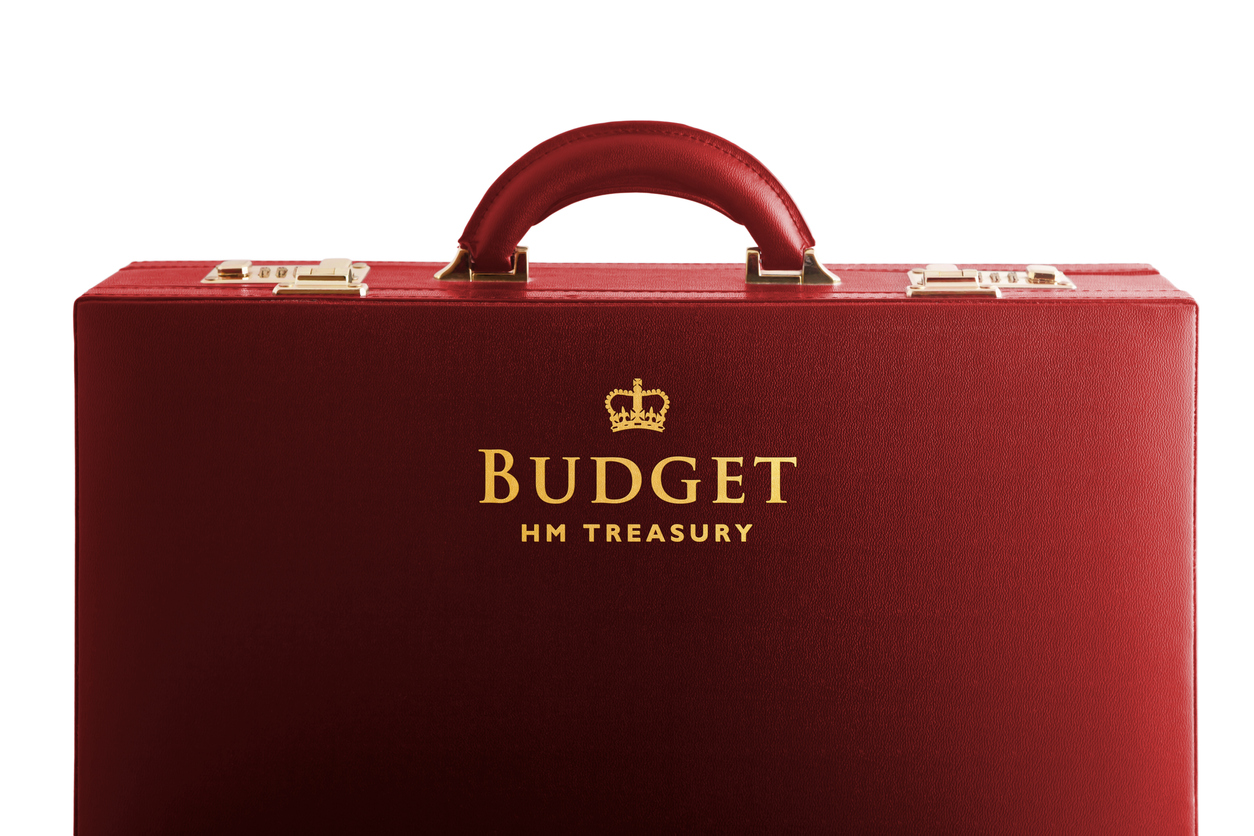Property InvestmentProperty News
Budget Changes 2021 – What Property Investors Need to Know

An extension of the Stamp Duty Land Tax holiday and Government guaranteed mortgages requiring only 5 per cent deposits are just two key measures introduced in this month’s Budget that look set to further buoy the UK’s busy housing market.
Chancellor of the Exchequer Rishi Sunak outlined the Government’s tax and spending plans for 2021 and beyond in the House of Commons this week. As with last year’s Budget, Sunak repeated his pledge to ‘do whatever it takes’ to support the economy as the country emerges from one of the biggest economic challenges it has ever faced, with the economy shrinking by 10 per cent – the largest fall in over 300 years – and borrowing at its highest outside of wartime.
So with this year’s Budget focused on the economic recovery, we take a look the changes that will affect property owners, landlords and investors.
Stamp Duty Holiday Confirmed
Much to the relief of many homebuyers caught up in the conveyancing and mortgage application logjam, the rumoured extension to the temporary cut in Stamp Duty Land Tax (SDLT) in England and Northern Ireland was finally confirmed in this week’s Budget.
The £500,000 nil rate band, which has helped hundreds of thousands of people buy a home far more cheaply than before, and supported the property market at a critical time, will now not end on 31 March but will be extended until 30 June.
Then in July, to avoid another worrying cliff edge and smooth the transition back to normal SDLT rates, the nil rate band will taper off, dropping to £250,000 until the end of September then return to its usual level of £125,000 from 1 October 2021. As with the current SDLT discount, property investors buying a second or further additional properties will still benefit from the SDLT holiday but will have to pay a three per cent stamp duty surcharge on current SDLT rates on properties they buy over £40,000.
After the discount period ends, first-time buyers will still be exempt to pay SDLT if they’re buying a property for £300,000 or less.
Rightmove’s property expert Tim Bannister, said: “This three-month extension will come as a huge relief for those people who have been going through the sales process since last year and were always expecting to make use of the stamp duty savings. Our recent data shows one in five sales that were agreed in the same month the stamp duty holiday was first announced in July last year still haven’t completed, so this additional time will make a big difference to help those stuck in the logjam complete their purchase in time before the new end of June deadline.”
Richard Donnell, research director at Zoopla also commented: “The stamp duty extension to June means a further 234,000 buyers who have already agreed a sale will save an estimated £987m on stamp duty.
“And those who agree a sale from now will be guaranteed savings of up to £2,500 as long as they complete before the end of September.”
Temporary Mortgage Guarantee Scheme for Buyers with 5% Deposits
Even with the stamp duty cut, the Government recognised the cost of a deposit is still a significant barrier to people getting on the property ladder. So a second property market stimulus the Chancellor announced in his Budget was the introduction of a new mortgage guarantee scheme that will enable UK homebuyers (residential home-movers as well as first-time buyers but not second home or buy-to-let purchases) to secure a mortgage up to £600,000 with a 5 per cent deposit.
This temporary measure, introduced by Sunak to address the current scarcity of high loan-to-value lending due to the pandemic, will be open for new mortgage applications between April 2021 and December 2022.
Lenders who provide mortgages to home buyers using a five per cent deposit will benefit from a government guarantee on the mortgages. Several of the country’s largest lenders including Lloyds, NatWest, Santander, Barclays, HSBC will be offering these 95 per cent mortgages from next month, with more, including Virgin Money, to follow shortly after.
According to Rightmove statistics, this move will benefit a large proportion of buyers, due to the fact that:
- 86 per cent of properties up for sale having an asking price of £600,000 or less (so qualify)
- The national average asking price for all properties is currently £318,580
- The national average asking price of a first-time buyer property is £200,692
However, it is thought the scheme will have less benefit for buyers in the south of England where high house prices (above £600K) are a major barrier for buyers to qualify for these 95 per cent mortgages.
Rightmove’s Tim Bannister explained: “We’ve heard from so many first-time buyers over the past year of their challenges to raise a 15% or 20% deposit, with a number saying they had to put their plans on hold, so the availability of 5% deposits will really help this all-important market sector.”
Corporation Tax Rise
The Chancellor also announced that Corporation Tax will increase to 25 per cent in April 2023 in this week’s Budget. However, he was keen to point out that the rise won’t affect smaller business with profits of £50,000 or less (around 70 per cent of actively trading companies) which will continue to be taxed at 19 per cent. A taper above £50,000 will be introduced so that only businesses with profits greater than £250,000 will be taxed at the full 25 per cent rate, he said.
Other Budget Announcements:
£5 Billion for New Restart Grants
The restart grant will comprise a one-off cash grant of up to £18,000 for hospitality, accommodation, leisure, personal care and gym businesses in England that were forced to close due to the pandemic and, as a result, couldn’t serve their clients. The grant will be available from April 2021. Further qualification and application details are yet to be released.
Furlough Scheme Extended Until the End of September
For those in all industries with employees, the furlough scheme will be extended until the end of September.
Employees on furlough will continue to receive 80 per cent of their salary for hours not worked until the scheme ends. As businesses reopen, the Government will require employers to contribute 10 per cent to staff salaries in July and 20 per cent in August and September.
As well as helping to ensure businesses have a workforce to return to work when they reopen, this is good news for employees with mortgages as the extension provides job security for a while longer at least.
Self Employment Income Support scheme extension to September 2021
Support for the self-employed will also continue until September with a fourth grant covering the period February to April, and a fifth and final grant from May onwards. However, this time the scheme is also open to the 600,000 people who filed a tax return in 2019-20. Eligibility criteria apply.
Recovery Loan Scheme
As the popular Bounce Back Loan and Coronavirus Business Interruption Loan programmes come to an end, the Government is introducing a new Recovery Loan Scheme to take their place.
Loans of between £25,001 and £10 million, and asset and invoice finance between £1,000 and £10 million, will be available from April 2021 to help businesses of all sizes through the next stage of recovery with the government providing a guarantee to lenders of 80 per cent of the loan. Eligibility criteria apply.
Five Per Cent VAT Rate Extension
Hospitality and accommodation businesses across the UK will continue to benefit from the 5 per cent VAT rates until the end of September, followed by a 12.5 per cent rate for a further six months until 31 March 2022.
100 Per Cent Business Rates Holiday in England
The business rates holiday is being extended for all eligible businesses in the retail, hospitality and leisure sectors. So if your business qualified before, it will again through to the end of June. For the remaining nine months of the year, business rates will be discounted by two thirds, up to a value of £2 million for closed businesses, with a lower cap for those who have been able to stay open. 750,000 eligible businesses in the retail, hospitality and leisure sectors in England will benefit from the business rates relief including hotels, guest houses and self-catering accommodation.
Super Deduction (Invest and Save)
Beginning April 2021, the Government has announced a new two-year super-deduction scheme that is designed to cut companies’ tax bills by 25p for every pound they invest in new equipment.
Sunak explained: “For the next two years, when companies invest, they can reduce their taxable profits* not just by a proportion of the cost of that investment, as they do now or even by 100% of their cost, the so-called full expensing some have called for, with the Super Deduction they can now reduce their taxable profits by 130% of the cost.
“Let me give the House an example. Under the existing rules, a construction firm buying £10 million of new equipment could reduce their taxable income, in the year they invest, by just £2.6 million. With the Super Deduction, they can now reduce it by £13 million.”
This measure seems sure to get companies investing in new equipment and, as a byproduct, into the economy.
£150 million Community Ownership Fund
The £150 million fund is designed to help communities across the United Kingdom take ownership of pubs, theatres, shops or local sports clubs at risk of loss. Community groups will be able to bid for up to £250,000 matched-funding to help them buy or take over local community assets at risk of being lost, to run as community-owned businesses. The first bidding round for the Community Ownership Fund will open by June 2021.
What Hasn’t Changed?
Property investors may be breathing a sigh of relief that Capital Gains Tax rates have not been raised in the Budget as was expected. However, Iain McCluskey, PwC, warns:
“Capital Gains Tax is paid by around 250,000 taxpayers a year, on sales of businesses, shares and second homes. The Office for Tax Simplifications’ recent report that the tax should be reformed and raised will have been sitting on the Chancellor’s desk, and it is likely he may turn back to the report in more normal times.”
This year’s Budget certainly wasn’t as hard-hitting on the property market as previous years. As promised, Sunak did seem to have the UK’s economic recovery at the heart of his plans. Let’s hope that continues…











